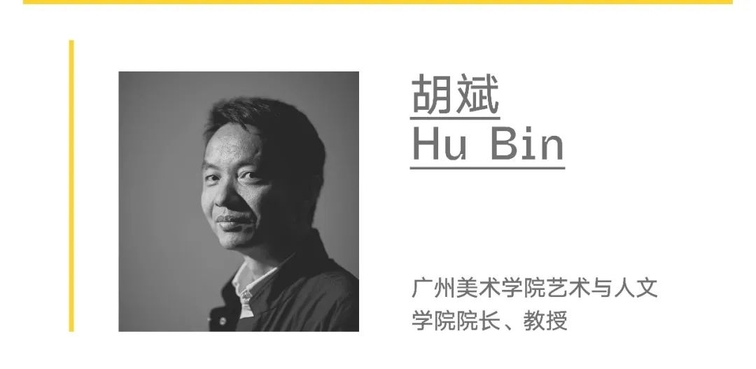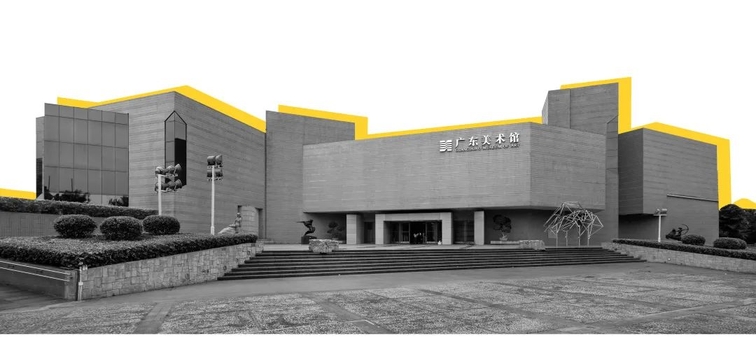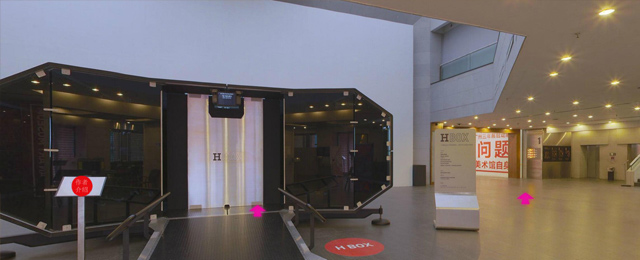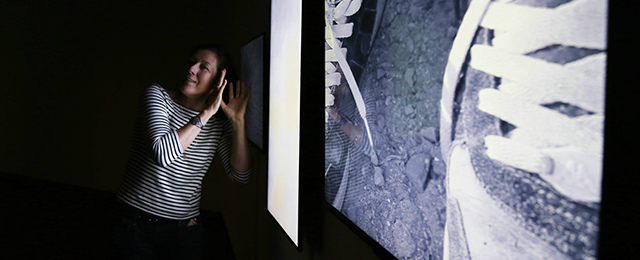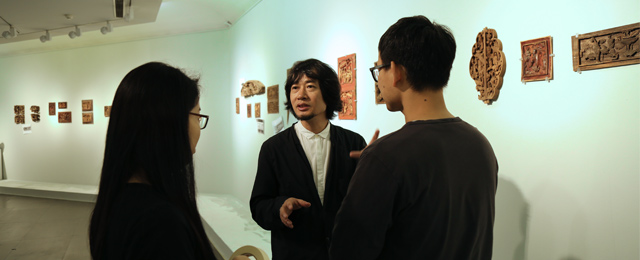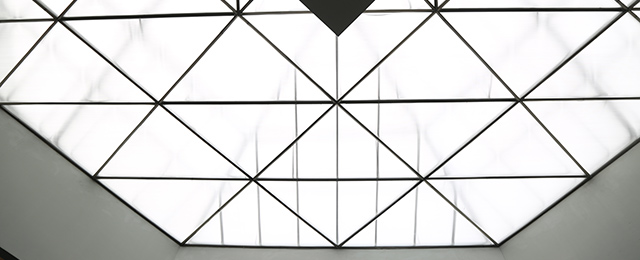Curatorial Team of 7th Guangzhou Triennial
Wang Shaoqiang, director of Guangdong Museum of Art, professor, researcher and is honored as an expert by the State Council. He is the director of Guangdong Art Museum Association, deputy director of Guangdong Artists Association. His honors as an educator include being a researcher and doctoral advisor at the Chinese National Academy of Arts and the former Dean of the School of Visual Art and Design of Guangzhou Academy of Fine Arts.
Since 2015, Wang has curated the Guangdong Centennial Art Exhibition and worked as the chief director and documentary curator of the 2017 Guangzhou Image Triennial, the 2021 Guangzhou Image Triennial, and the 6th Guangzhou Triennial. Over than 100 exhibitions Wang has curated and many of which have won Excellent Project Award of the Ministry of Culture and Tourism. He was considered a leading cultural talent in 2017 and was listed twice as a notable figure in the "Chinese Art Power List" as well as the "National Art" list. Wang currently lives and works in Guangzhou.
Wu Hongliang is a member of the National Committee of the Chinese People's Political Consultative Conference, president of the Beijing Fine Art Academy, deputy director and secretary general of the China Artists Association Curator Committee, and vice chairman of the Beijing Artists Association.
Wu is also a research expert of Qi Baishi and the art history of the 20th century as well as an influential curator. In 2008, he participated the opening and closing ceremonies and sculpture project of the Beijing Olympic Games. Under his auspices, the Art Museum of Beijing Fine Art Academy was selected as one of the first nine important art museums of national level. Moreover, the published research achievements and the launched exhibitions of Beijing Fine Art Academy won more than ten awards from the Ministry of Culture and Tourism for years in a row. Wu was also one of the planners that brought Qi Baishi's art to Macao, Hungary, Japan, Greece and other countries and regions for display, earning acclaims from the industry and global audience. Besides, he was engaged in the organization of influential academic projects such as the "Curating in China" forum and the International Forum of Qi Baishi’s Art. In 2015, he was awarded the title of Outstanding Expert by the Department of Culture of China. In 2019, he was appointed the curator of the China Pavilion at the Venice Biennale. In 2021, he was appointed the planning committee director of the global call for public art works of the 2022 Beijing Olympic and Paralympic Winter Games. In recent years, he had many papers published in professional journals such as Literature and Art Studies, Art Magazine, Art Observation, and Art Research, and published his monograph Yi Ye Zhi Qiu (know the arrival of autumn through a fallen leaf).
Wu has been invited as the judge of the China National Arts Fund and Beijing Culture and Art Foundation for many years. Besides, he has taught at the Peking University, Tsinghua University, Sun Yat-Sen University, Central Academy of Fine Arts, Party School of the Ministry of Culture and Tourism, Heidelberg University in Germany etc. On top of that, the artist has been invited to make speeches at Stanford University, School of Oriental and African Studies of University of London, University of Venice, the Kyoto National Museum, the Uijae Museum of Korean Art and other institutions.
Philip Dodd has won many awards for his work in the field of art and especially for his work between China and Europe. He was invited to be a Fellow of the Royal Society of Arts and has been awarded an honorary doctorate (Doctor of Literature) for his outstanding contribution to culture.
Between 1997 and 2004 he was Director of London's Institute of Contemporary Arts, which the then Prime Minister Tony Blair said had an 'unparalleled reputation for innovation and new ideas'. In 1998, the Prime Minister invited Philip Dodd and the ICA to accompany him on his first visit to China. While at the ICA, Philip Dodd staged innovative exhibitions with artists and architects from Zaha Hadid to Andy Warhol. In 1999 he staged at the ICA the first festival in Europe of contemporary Chinese art, film and dance. After he left the ICA, he committed himself full-time to developing European/Chinese cultural relationships. In 2008 he was one of the founders of a year-long UK based festival China Now, showcasing the best of Chinese contemporary culture. He has curated many exhibitions in London, Beijing, Guangzhou, Moscow, Singapore and New York with important artists from Yoko Ono to Hsiao Chin.
His relationship with the Guangdong Museum of Art stretches back many years. He first invited the then director of the Museum, Wang Huangsheng, in 2008 to an important summit with western museum directors in Oxford, England. He has worked with the Guangdong Museum of Art on numerous occasions, bringing to the museum several major Western artists for one-person exhibitions, including Sean Scully in 2016 and Maggi Hambling in 2019.
Born in Coburg, Germany, Thomas Eller studied art and humanities at the University of the Arts in Berlin and the Free University of Berlin, and from 1987 to 1995 he worked as a research assistant at the Social Science Center in Berlin.From 1995 to 2004 he lived in New York. upon his return to Berlin in 2004, he founded the online art magazine artnet.de and served as editor-in-chief and executive manager from 2004 to 2008. in 2008 and 2009, he was executive director and artistic director of the Museum of Contemporary Art Berlin.In 2014, he moved to Beijing. Also in 2014, he co-curated the exhibition "Path No. 8" with 23 Beijing-based artists in Berlin. He now serves as the president of Randian Magazine.From 2018 to 2020 he is artistic director of the Tao Xichuan Chinese Art and Culture Program in Jingdezhen, the world capital of porcelain in Jiangxi Province, and most recently an associate researcher at Tsinghua University. Currently he is a member of AICA and CIMAM.
The awards:
Käthe-Kollwitz-Prize, Akademie der Künste Berlin, 2006
Art Omi International Art Center, New York, 2002
Villa Roma Prize, Florence, 2000
Carl Schmidt-Rotruff Prize, 1996
Dr. Jiang Jun is a curator, art critic, postdoctoral in architecture at Tongji University, and columnist of art.ifeng.com based in Shanghai and Hangzhou. Since 2015, he has taught art history and art theory at the China Academy of Art, Shanghai Academy of Fine Arts and University of Fine Arts Münster. He is also a researcher of the International Public Art Association (IPA) and member of the Information and Interaction Design Committee (IIDC) of China Industrial Design Association.
In 2019, Jiang was invited by Hyundai Blue Prize as the preliminary judge. In 2020 he was a founding member of the Experimental Art and Scientific Art Committee of the Shanghai Artists Association. In 2022, he became the curator of the public art section of the 4th China design exhibition &public art thematic exhibition.
Fan Lin graduated from Sun Yat-sen University and Guangzhou Academy of Fine Arts (GAFA). She is a professor at the School of Arts and Humanities of GAFA and a member of the academic committee of GAFA. She is mainly devoted to teaching, researching, and writing on Western art history; contemporary art criticism, and exhibition planning. Also, she published art criticism articles and hosted artists' personal publications. She was invited to curate exhibitions and lectures in Australia, Hungary, and Germany and to attend the Norwegian Biennale as an observer. She was an academic committee member and unit curator of "Lianzhou International Photo Festival". Plate curator of "Shenzhen & Hong Kong Bi-City Biennale of Urbanism and Architecture." The jury of "Award of art China· Annual Impact."
Feng Yuan is engaged in visual cultural studies and cultural criticism. He is involved in visual arts, design and architecture, urban and regional culture, etc. Also, he engaged in space design, public art creation, conceptual art creation, creative planning, and curation practice. He lives and works in Guangzhou as a professor at the School of Communication and Design at Sun Yat-sen University. He is the director of the Center for Visual Communication Research of Sun Yat-sen University.
Gu Zhenqing graduated from the History department of Fudan University in China in 1987. He was a general curator and associate director of the Shanghai Duolun Museum of Modern Art from 2003 to 2006. He was also the Art Director of the Chinese Contemporary Art Award (CCAA) in 2004 and executive director of Zhu Qi-Zhan Art Museum, Shanghai, from 2006 to 2007. From 2018 to 2020, he was a visiting associate professor in the Sculpture Department of Taiwan University of Arts. He has been a visiting professor at Guangzhou Academy of Fine Arts since 2021.
Guan Yuda is an art critic and curator, the professor of Yunnan University, academic committee member of the Annual Conference of Chinese Art Critics. He is an academic committee member of Peking University, University of Chicago, and OCT “Contemporary Chinese Art Yearbook.” He mainly engaged in Chinese contemporary art criticism, curatorial and art historical research , art documentation and teaching; he has been an important critic and curator in the field of Chinese contemporary art since the 1990s.
Hu Bin is the dean and professor at the School of Arts and Humanities, Guangzhou Academy of Fine Arts. He was the executive associate director of the Art Museum of Guangzhou Academy of Fine Arts. He focused on the history of Chinese revolutionary art and the exhibition history of Modern and contemporary Chinese art history. He has been a critic and curator of contemporary art.
Ji Shaofeng, a critic and curator, director of the Hubei Museum of Art. The Rotating Chairman of the 14th Annual Meeting of Chinese Art Critics. Deputy secretary-general of the China Sculpture Institute. Deputy Director of Professional Committee in Contemporary Art of the China National Society for the Promotion of Arts and Culture (CNSPAC). The expert on special government allowances of the State Council and professor in Liberal Arts.
Lü Peng is an art historian. He was born in Chongqing, Sichuan, in 1956. From 1990 to 1993, he was executive editor of Art Market magazine. In 1992, he hosted “The Guangzhou Biennale.” In 2004, he graduated from the China Academy of Art with a doctorate. He served as an associate professor of the School of Arts and Humanities, China Academy of Art, from 2005 to 2016. He is currently the art director of the Yinchuan Museum of Contemporary Art (MOCA). The dean of NAT Art Institute. The professor of Sichuan Fine Arts Institute. The distinguished professor of Macau University of Science and Technology.
Pi Daojian, graduated with the post-graduate degree in Art History at Hubei Institute of Arts. He taught at the University after graduation.In the 1980s, he participated in the founding and editing of “The Trend of Art Thoughts,”and served as an editorial board member and deputy editor. In 1988, he was appointed as a member of the Theory Committee of the China Artists Association. He was transferred to the Fine Arts Department of Nanjing Normal University in 1992. He planned and hosted various exhibitions and academic seminars.
Qiu Zhijie, an artist and curator, professor, master and doctoral supervisor at the Central Academy of Fine Arts. The dean of CAFA School of Experimental Art and the associate dean of CAFA School of Science and Art. The director of artificial Intelligence and Data Art Lab. The distinguished professor of School of Inter-media Art, China Academy of Art. The founder of EAST (Education, Art, Science and Technology) alliance. The council member of China Artists Association. The associate director of Experimental Art Committee of Chinese Artists Association. The council member of China Photographers Association.
Sheng Wei holds a Ph.D. in the history of Art. He is a critic, curator and the vice chief of the Meishu magazine. He has won "Wang Senran Award for Art History," and "Yishu Award for Critical Writing on Contemporary Chinese Art." He was selected for "Fine Arts Award of China-Theory and Criticism Award" and "Top Young Talent" program of the "Ten Thousand Talents."
Wang Xiaosong is a Doctor of Art, critic, and curator. He curated more than 40 modern and contemporary art and design exhibitions. He has published his personal collection of art criticism "Behind the Sight" and edited more than 20 research papers related to the field of art and design. He has been writing comment columns for many art media in Mainland, Taiwan, and Hong Kong.
Xia Kejun is a philosopher, critic, curator, and Doctor of Philosophy. He studied at Freiburg, Frankfurt University and Strasbourg University in France. He is a professor School of Literature and doctoral supervisor at the Renmin University of China.
Xiang Liping received her doctorate in visual culture and curatorial studies from the China Academy of Art. She spearheaded a feasibility report in 2011 on the founding of a state contemporary art museum, and participated in the preparation, construction, and opening of what was to become the Power Station of Art (PSA). She led the Shanghai Biennale from 2006 to 2017 and she has been Head of Exhibition Department of PSA since 2013.
Yang Xiaoyan is a professor and doctoral supervisor of the School of Art, Sun Yat-sen University. He is the visiting professor and postgraduate supervisor of the Guangzhou Academy of Fine Arts. He has focused on visual communication, urbanology and art criticism. He curated many exhibitions of photography, modern and contemporary art. At the same time, he continued to engage in artistic practice and held several personal exhibitions and participated in several exhibitions.
Zhang Qing, currently the Deputy Director of the National Art Museum of China, a research curator. He is a leading talent in philosophy and social sciences under the "Ten Thousand People Plan" , a cultural master and "Four Batches" of talents, the expert on special government allowances of the State Council, an outstanding expert of the Ministry of Culture and Tourism of the People’s Republic of China, and the deputy director of the Curatorial Committee of the China Artists Association.
Zhang Zikang, director of the CAFA Art Museum, professor and doctoral supervisor. He is the chief editor of the “Art Museum” magazine. Vice president of Institute of Art and Technology, Central Academy of Fine Arts. Also, he is the council member of the China Artists Association and deputy director of the Experimental Arts Committee of the China Artists Association. Deputy director of the Art Museum Professional Committee of China Museum Association. He planned, edited and published more than a thousand literary and art books. He won many National Book Awards and planned numerous influential large-scale art exhibitions in China and abroad.
Opening hours: 9:00-17:00 from Tuesday to Sunday (closed on Mondays),No admission after 16:30
Address: 38 Yanyu Road, Ersha Island, Yuexiu District, Guangzhou, Guangdong
Tel: 020-87351468
Free Admission: Audiences may visit by presenting valid certificate
Group Visit: Please make reservation by telephone two days in advance for any group with more than 10 people and visit the Museum at the agreed time by producing the confirmation message.
相关文章

















